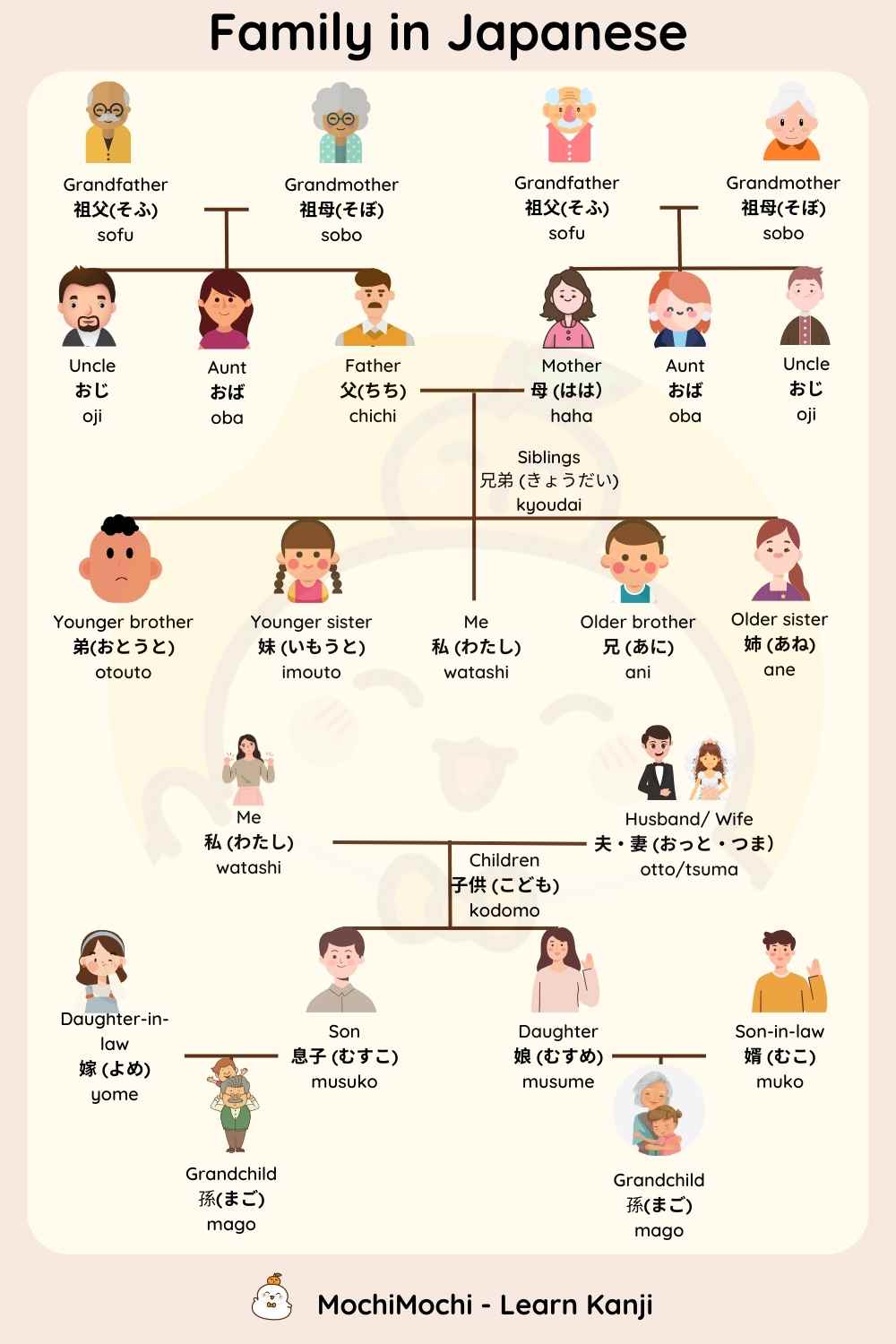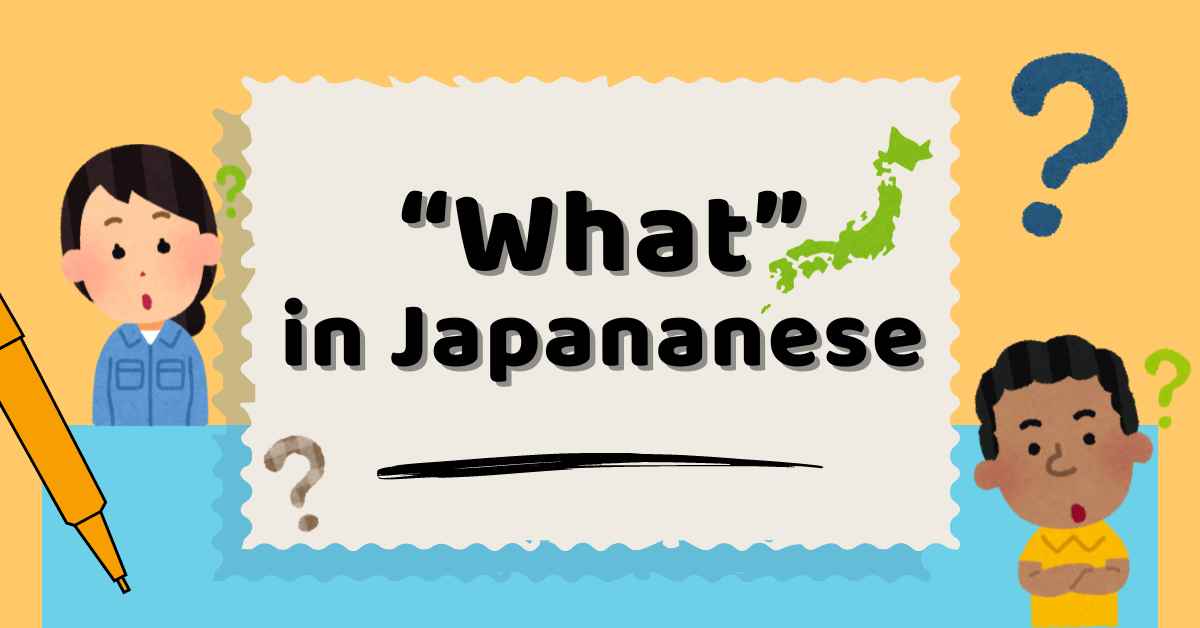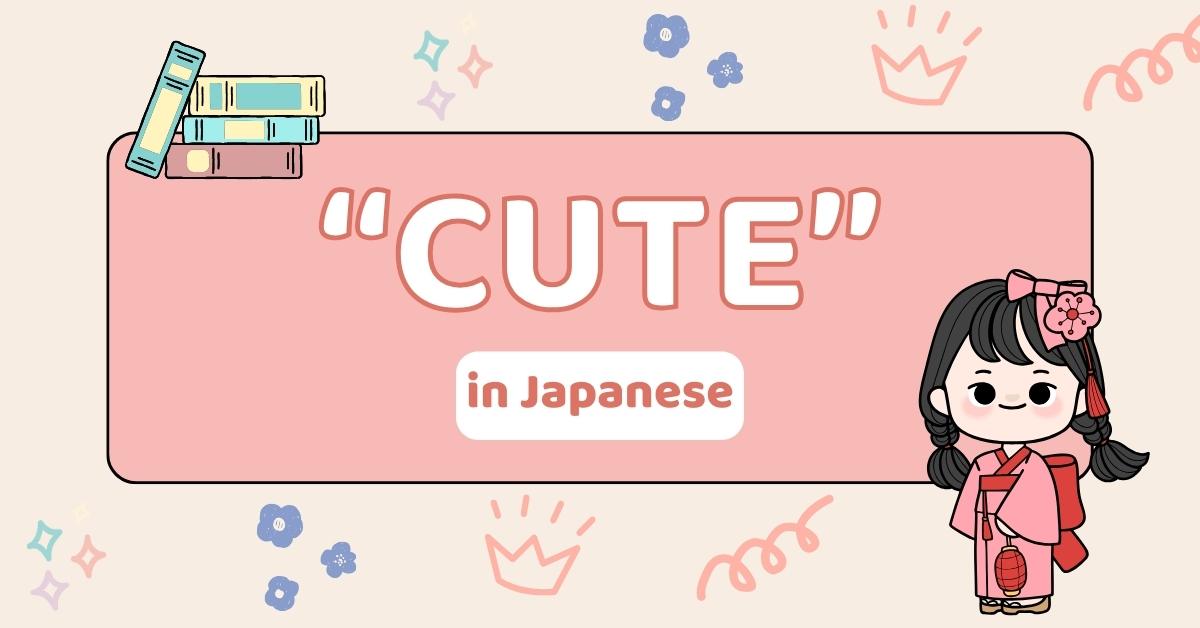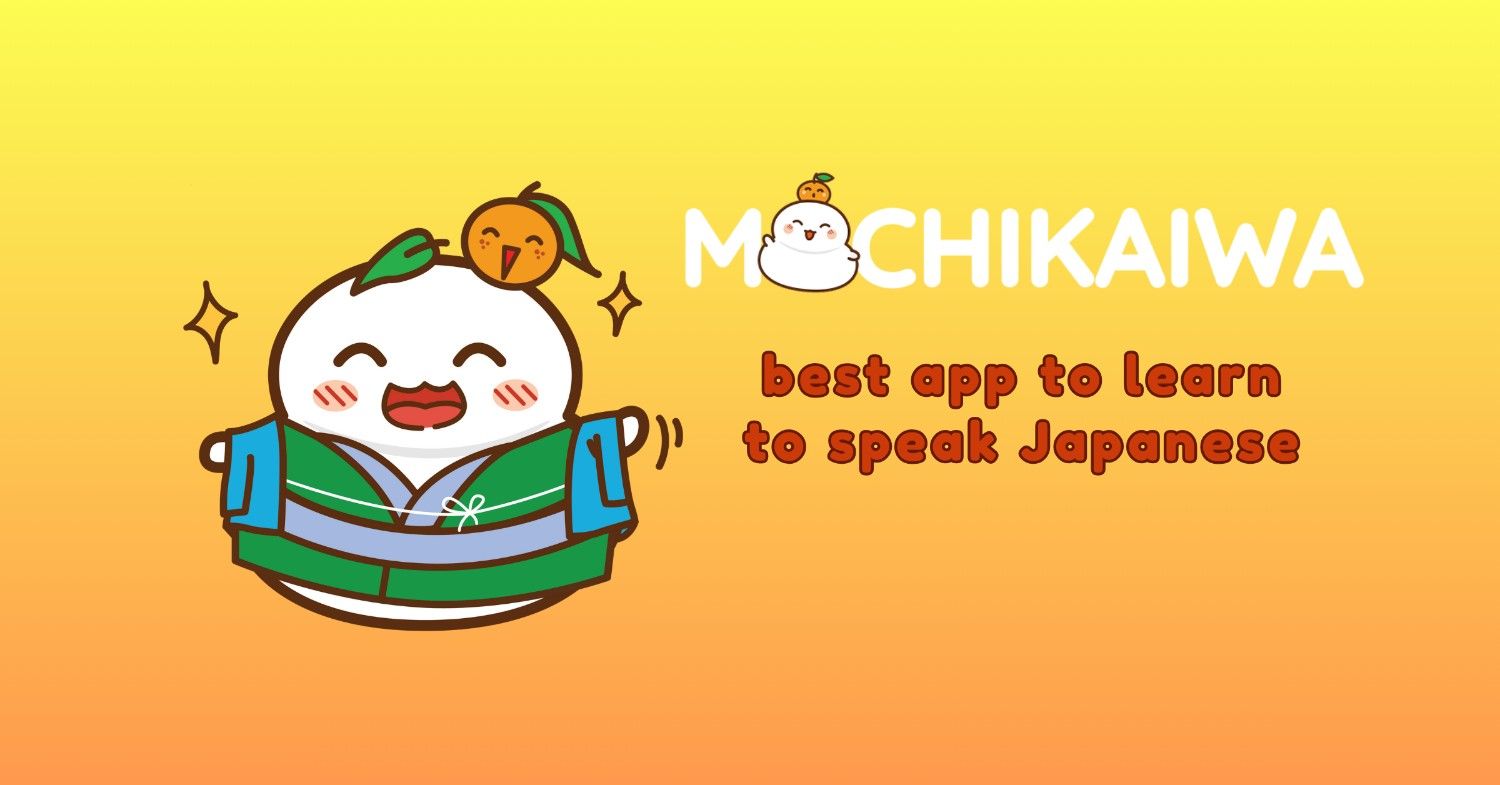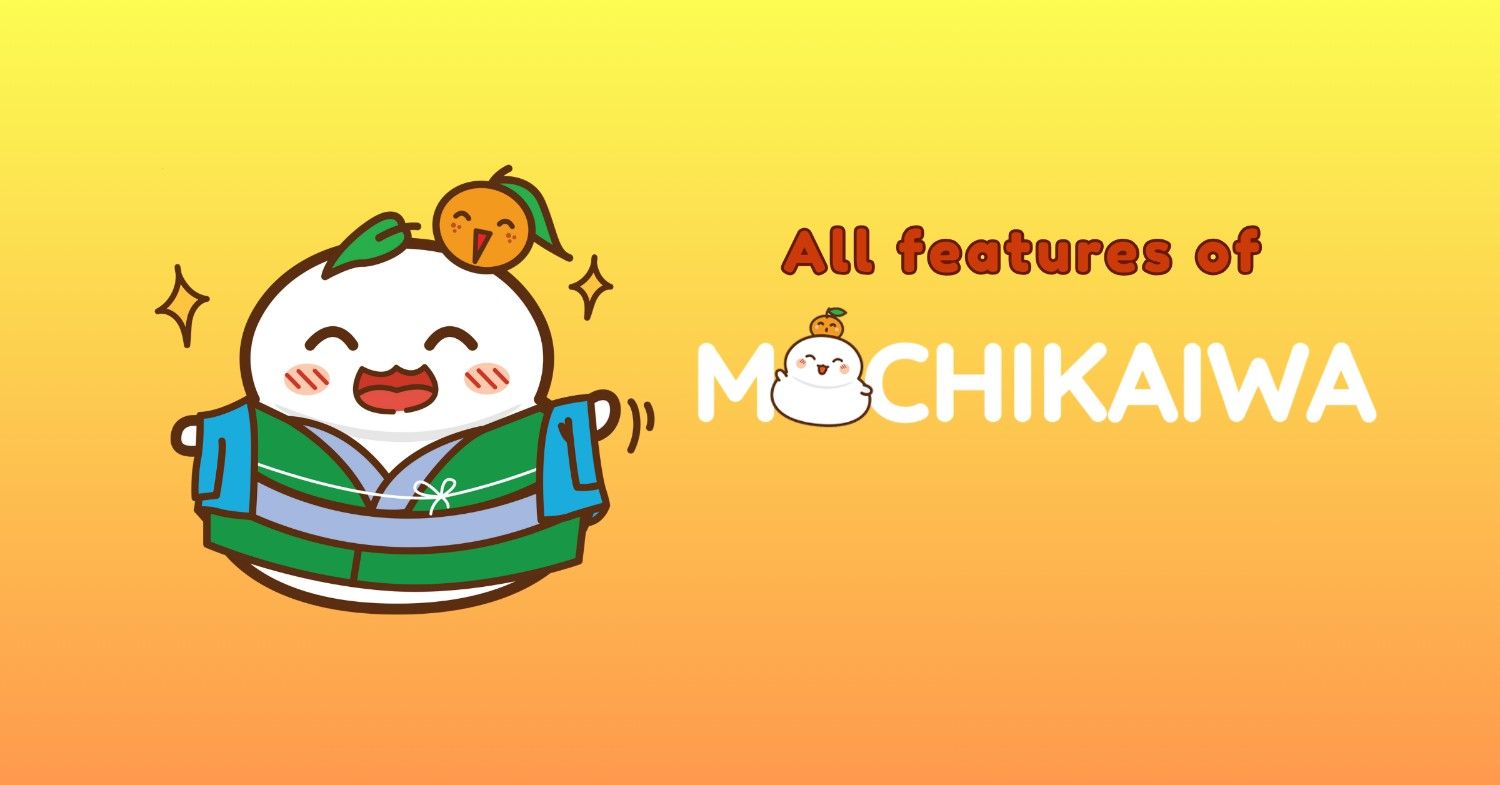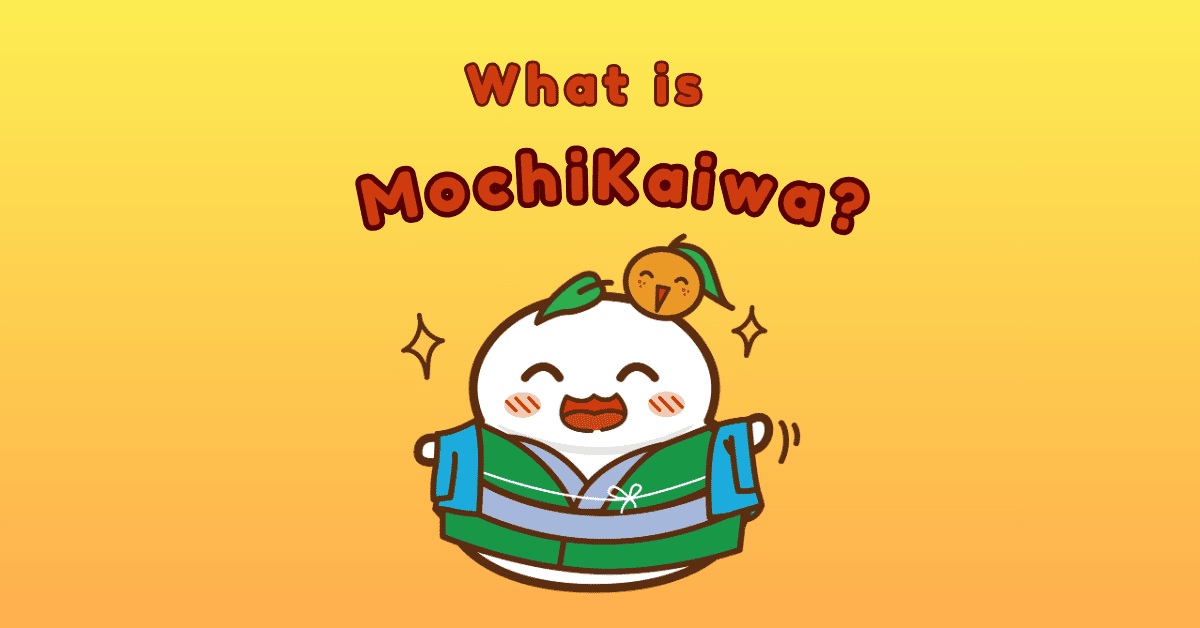For Japanese learners and those new to the language, understanding how to refer to family members is essential. Here’s a comprehensive guide on how to say “family” in Japanese, identify various family members, and appreciate the cultural significance of this term in Japan.
- What is “Family” Called in Japanese?
- Japanese terms for family members
- Expressions Related to Family
- The Importance of Family in Japanese Culture
- Learn More Vocabulary About Family and Friends
- Practice and Learn
- FAQs

What is “family” called?
The accurate word for “family” in Japanese is 家族 (かぞく, kazoku). This term encompasses the nuclear family and can extend to include extended family members depending on the context.
Japanese terms for family members
Here’s a table of common family members in Japanese:
| Meaning | Kanji | Hiragana | Romaji |
|---|---|---|---|
| Family | 家族 | かぞく | kazoku |
| Father | 父 | ちち | chichi |
| Mother | 母 | はは | haha |
| Older Brother | 兄 | あに | ani |
| Older Sister | 姉 | あね | ane |
| Younger Brother | 弟 | おとうと | otouto |
| Younger Sister | 妹 | いもうと | imouto |
| Grandfather | 祖父 | そふ | sofu |
| Grandmother | 祖母 | そぼ | sobo |
| Husband | 夫 | おっと | otto |
| Wife | 妻 | つま | tsuma |
| Son | 息子 | むすこ | musuko |
| Daughter | 娘 | むすめ | musume |
| Parents | 両親 | りょうしん | ryoushin |
| Siblings | 兄弟 | きょうだい | kyoudai |
Using MochiKanji to learn Japanese terms for family members is incredibly helpful. The app’s flashcards and spaced repetition system make it easy to remember terms like “父” (chichi) for father and “母” (haha) for mother. Start using MochiKanji to master these essential family vocabulary terms efficiently!
Related expressions
In addition to knowing the individual family members, it’s helpful to learn some common expressions:
- My family: 私の家族 (わたしのかぞく, watashi no kazoku)
- Your family: あなたの家族 (あなたのかぞく, anata no kazoku)
- Family gathering: 家族の集まり (かぞくのあつまり, kazoku no atsumari)
- Family home: 実家 (じっか, jikka)
- Family member: 家族の一員 (かぞくのいちいん, kazoku no ichiin)
The Importance of Family in Japanese culture
This term holds a significant place in Japanese culture. The concept of “家族主義” (かぞくしゅぎ, kazokushugi), or “family-centrism,” emphasizes the importance of family loyalty, respect for elders, and the collective over the individual. In traditional Japanese families, multiple generations often live together under one roof, and filial piety (孝, kou) is a deeply valued principle. Respecting and taking care of one’s parents and grandparents is seen as a moral duty.
Learn more vocabulary about family and friends in Japanese
Expanding your vocabulary beyond immediate family members can be beneficial for deeper social interactions. Here are additional terms related to extended family and friends:
Extended family members
- Uncle: 叔父 (おじ, oji)
- Aunt: 叔母 (おば, oba)
- Cousin: いとこ (いとこ, itoko)
- Nephew: 甥 (おい, oi)
- Niece: 姪 (めい, mei)
Friends and relationships
- Friend: 友達 (ともだち, tomodachi)
- Best friend: 親友 (しんゆう, shinyuu)
- Acquaintance: 知り合い (しりあい, shiriai)
- Boyfriend: 彼氏 (かれし, kareshi)
- Girlfriend: 彼女 (かのじょ, kanojo)
Phrases for talking about family and friends
- Do you have siblings?: 兄弟はいますか? (きょうだいはいますか, Kyoudai wa imasu ka?)
- How many people are in your family?: ご家族は何人ですか? (ごかぞくはなんにんですか, Gokazoku wa nan nin desu ka?)
- This is my friend.: こちらは私の友達です。 (こちらはわたしのともだちです, kochira wa watashi no tomodachi desu.)
Practice and learn
To get comfortable with these terms and expressions, incorporate them into your daily practice. Here are some tips:
- Flashcards: Use flashcards to memorize the vocabulary.
- Apply Spaced repetition technique: Spaced repetition is a learning method where you review information at progressively longer intervals. This approach takes advantage of the spacing effect, which indicates that we remember things better when they’re reviewed over time, rather than all at once.
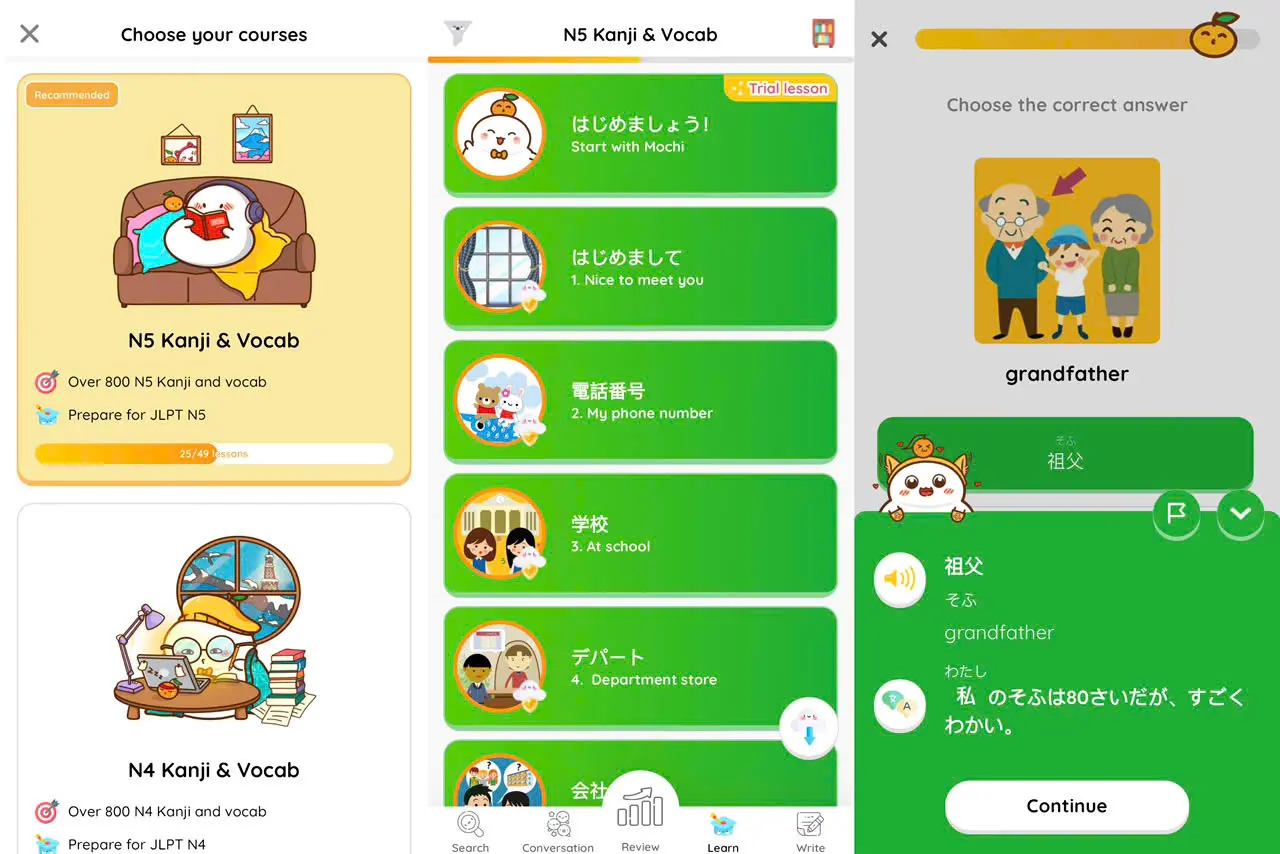
Apps like MochiKanji-learn Japanese are perfect for trying out this new learning technique. Not only this, the app also provides you with various lessons divided into topics so you can choose one and learn them based on your liking.
Start learning now!
- Daily Conversations: Practice using these words in daily conversations or role-playing scenarios.
- Listening Practice: Listen to Japanese media, such as TV shows and movies, to hear how native speakers talk about their families.
- Writing Practice: Write about your own home and relatives in Japanese to improve your writing skills and vocabulary retention.
Example Sentences
Talking about family:
- 私の家族は5人です。 (わたしのかぞくはごにんです, Watashi no kazoku wa go nin desu.) – “There are five people in my family.”
- 兄が二人います。 (あにがふたりいます, Ani ga futari imasu.) – “I have two older brothers.”
Introducing family members:
- こちらは私の母です。 (こちらはわたしのははです, Kochira wa watashi no haha desu.) – “This is my mother.”
- 彼は私の弟です。 (かれはわたしのおとうとです, Kare wa watashi no otouto desu.) – “He is my younger brother.”
By learning these terms and practicing regularly, you’ll gain a better understanding of Japanese family dynamics and improve your ability to communicate in Japanese. This not only enhances your language skills but also deepens your appreciation of Japanese culture.
FAQs
What is the Japanese name for family?
The Japanese word for “family” is 家族 (kazoku). This term refers to one’s immediate family, including parents, siblings, and children. In a broader context, it can also be used to describe the idea of family or household as a unit in general. Japanese culture places great importance on family ties, with traditional values emphasizing respect for elders and a strong sense of duty towards the family.
What is family in Japanese kanji?
In Kanji, “family” is written as 家族.
- 家 (ie or ka) means “house” or “home.”
- 族 (zoku) means “tribe” or “clan.” Together, they form the word 家族 (kazoku), representing the concept of family as a household or a unit living together under the same roof. This word signifies both the physical home and the people who belong to the same family or lineage.
How do you say family in hiragana?
The word “family” is written in Hiragana as かぞく (kazoku). Hiragana is typically used for native Japanese words, and it’s useful for learners who may not yet know Kanji. In everyday writing, Japanese people usually use the Kanji form 家族, but they may write it in Hiragana for simplicity, especially in materials for children or beginners.
What does Kazoku mean family?
Kazoku (家族) means “family” in Japanese, encompassing immediate family members like parents, siblings, and children. The term refers to a group of people who live together or are related by blood or marriage. In Japanese culture, family is central to societal structure, and the concept of kazoku extends beyond just the nuclear family, often encompassing extended family members in traditional contexts.
While kazoku literally means “family,” the concept carries emotional and cultural significance, implying bonds of support, love, and respect. It represents not just the individuals in a household but also the sense of belonging and the duties and responsibilities that come with being part of a family in Japan.

